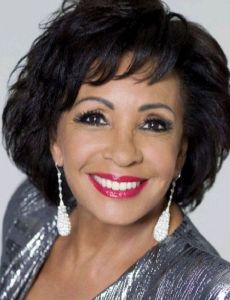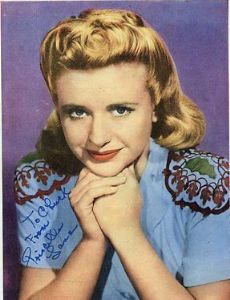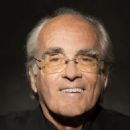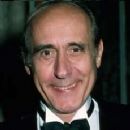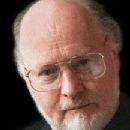JHON BARRY-MUSICIAN COMPOSER-ORCHESTRATOR
editJohn Barry Prendergast, OBE (/ˈbæri/; 3 November 1933 – 30 January 2011) was an English composer and conductor of film music. He composed the scores for 11 of the James Bond films between 1963 and 1987, and also arranged and performed the "James Bond Theme" to the first film in the series, 1962's Dr. No. He wrote the scores to the award winning films Midnight Cowboy, Dances with Wolves and Out of Africa, as well as the theme for the British television cult series The Persuaders !, in a career spanning over 50 years. In 1999 he was appointed OBE at Buckingham Palace for services to music.
John Barry: The Iconic
editJohn Barry certainly had his future set out when he was born. Born in York, England in 1933 as John Barry Prendergast, his mother was a classical pianist and his father owned a bunch of movie theaters in town. John eventually learned piano and trumpet; also while being able to work as a projectionist in his teens. After joining the British Army in 1950, he played in the military band, he also continued composing, and even took a correspondence course in composition/arranging and orchestration. After leaving the Army, along with other former army buddies, the John Barry Seven was formed in 1957 (Barry was vocals and trumpet). They became a backing band, with gigs on TV like Oh, Boy! and Adam Faith’s Drumbeat in 1959. Barry became Faith’s arranger and backed him on record and various tours and films. This rock background and work with Adam Faith led to his film debuts with Beat Girl [Wild For Kicks] (1960) and Never Let Go (1960). From the very start, he was the composer and conductor.
The career defining arrangement of Monty Norman’s theme for Dr. No (1962) brought Barry into the realm of James Bond. The battle for the theme’s credit has gone on for decades. Interestingly enough, the trademark guitar riff in the theme was played by Vic Flick, a past member of the John Barry Seven. No matter the exact contribution to the arrangement, it is Barry’s work in the Bond series that is remembered, and not Norman. The next Bond follow-up was From Russia With Love (1963), which Barry incorporated his new arrangements of the Bond Theme. This film was also the first to include the “007 Theme”, a secondary theme for James Bond. The rhythmic theme was also used in four other Bond films composed by Barry.
1964’s Zulu features a large array of marches and powerful action cues. Barry’s brass work shines in Zulu as well as the next Bond film, Goldfinger (1964). The title song (and subsequent uses) is really the highlight of the score. Barry continued his work in spy films with The Ipcress File (1965). The World War II drama King Rat (1965) continued Barry’s collaboration with director Bryan Forbes, which other films include The L-Shaped Room (1962) and Séance on a Wet Afternoon (1964). 1965 also continued the Bond series with Thunderball. With the original title song cut at the last minute, Barry composed the new title song, eventually orchestrating new cues with the theme interpolated. Even after the quick changes, some bits of the original song – Mr. Kiss Kiss Bang Bang, were left in the underscore.
Born Free (1966) proved to be another big success for Barry. Following his great formula, the song version of the theme was a gigantic hit on the Billboard chart and UK Singles Chart. Both the song and score won Barry his first Academy Awards. Barry’s next return to Bond was for You Only Live Twice, featuring a Japanese-inspired score and the great track - Capsules in Space. After his collaboration with director Anthony Harvey for Dutchman (1967), they reunited for the epic drama The Lion in Winter (1968). The score won Barry another Oscar, as well as the first BAFTA Award for film music. While uncredited, Barry composed the score to Midnight Cowboy (1969) and credited as music supervisor. The harmonica solos were performed by Toots Thielemans (who would also solo in such film scores as Cinderella Liberty (1973), The Sugarland Express (1973) for John Williams and Thomas Newman’s Fried Green Tomatoes (1991)). After replacing Michel Legrand for The Appointment (1969), the score was eventually re-edited and rescored by Stu Phillips, with some versions featuring the John Barry score. Barry finished out the decade with the next Bond installment, On Her Majesty’s Secret Service (1969). Even though the film didn’t feature a title song, Barry composed the song We Have All the Time in the World, one of best songs in the series.
1971 saw Barry worked on several films, including They Might Be Giants with director Anthony Harvey, another Oscar nomination for Mary, Queen of Scots and the Bond installment, Diamonds are Forever.
Taking a break from James Bond scores, he passed Live and Let Die (1973), and the score was done by George Martin. He returned to the series for The Man with the Golden Gun (1974). Barry reunited with director John Schlesinger for The Day of the Locust (1975). He also composed the romantic drama Robin and Marian (1976), and reunited with director John Guillermin for the Dino De Laurentiis remake of King Kong (1976). Barry returned to Bond with Moonraker (1979), the last film to feature his “007 Theme”.
The 1980s proved to be a tough decade for Barry, with the death of his parents and the death of his older brother. It also brings some of Barry’s most lyrically beautiful work. The score to Somewhere in Time (1980) is some of Barry’s best melodic work. Other films include Body Heat (1981), Bond film Octopussy (1983), The Cotton Club (1984) and another Bond film A View to a Kill (1985). His exquisitely sweeping score to 1985’s Out of Africa, won Barry another Oscar. He dedicated its soundtrack to his brother, Patrick. It is also his only score to make the list of AFI Top 25 Film Scores.
In typical Hollywood fashion, he was hired to score The Golden Child (1986), which eventually was rescored by Michael Colombier, while leaving bits of Barry’s score in the final film. Barry’s final film score for the James Bond franchise was in 1987, with The Living Daylights. In 1988, Barry’s esophagus ruptured, needing four surgeries over two years. His return to film scoring was his masterwork Dances with Wolves (1990). The fantastic score won Barry another Academy Award and a Grammy. In his Oscar speech, he thanked his team of doctors. His scoring slowed in the 1990s, but his score to Chaplin (1992) received many nominations. His scores continued to have lush string parts, and wholly orchestral scores. Films that followed that formula include: Indecent Proposal (1993), The Specialist (1994), Cry, the Beloved Country (1995), The Scarlet Letter (1995), and Mercury Rising (1998).
With 1996’s Tomorrow Never Dies, composer David Arnold took over the reins of Bond for five subsequent films. Barry was inducted into the Songwriters Hall of Fame in 1998, and honored as an Officer of the Order of the British Empire in 1999. Also in 1999, Barry composed an album of non-film work, titled The Beyondness of Things. His last film score, Enigma, was released in 2001. In 2005 the BAFTA Awards honored him with the Academy Fellowship, and the World Soundtrack Awards honored Barry with a Lifetime Achievement Award in 2010. In a tremendous loss to the film community, Barry died in at the age of 77 in January, 2011.
John Barry’s sound is nothing short of iconic. From his wailing trumpets in the Bond series, to his lush, seemingly simple melodies in films like Dances with Wolves, his style remains. His scores go right to the emotional core of the film and connect us directly to the characters. He works on the levels of chart-topping popular themes and yet satisfying for film score buffs. His sweeping melodies and distinctive brass techniques make John Barry a film score legend.
Posted by Admin at 1:23 PM
Email ThisBlogThis!Share to TwitterShare to FacebookShare to Pinterest
Labels: COMPOSER
FROM: http://musicbehindthescreen.blogspot.com/2012/03/john-barry-iconic.html
You can find people similar to John Barry by visiting our lists English male film score composers and British male film score composers.
| Full name at birth | John Barry Prendergast
|
||
| Claim to fame | James Bond Themes, Born Free
|
||
| Date of birth | 3 November 1933
|
||
| Place of birth | York, Yorkshire, England, UK
|
||
| Date of death | 30 January 2011
|
||
| Age | 77 (age at death)
|
||
| Place of death | Oyster Bay, NY, USA
|
||
| Cause of death | Heart attack
|
||
| Resting place | Cremated, Ashes given to family or friend
|
||
| Occupation | Composer, conductor
|
||
| Occupation category | |||
| Nationality |
PERSONAL DETAILS
| Height | 5' 10" (178 cm)
|
||
| Build | |||
| Hair color | |||
| Eye color |
|
||
| Gender | |||
| Ethnicity | |||
| Sexuality | |||
| Religion |
|
||
| Zodiac sign | |||
| Distinctive feature |
|
||
| Pets |
|
ADDITIONAL DETAILS
| High school | St Peter's School, York
|
|
|
| University |
|
||
| Talent agency |
|
||
| Political affiliation |
|
||
| Political party |
|
More...
This page is the FamousFix profile for John Barry. Content on this page is contributed by editors who belong to our editorial community. We welcome your contributions... so please create an account if you would like to collaborate with other editor's in helping to shape this website.
On the John Barry page you will be able to add and update factual information, post media and connect this topic to other topics on the website. This website does skew towards famous actors, musicians, models and sports stars, however we would like to expand that to include many other interesting topics.











